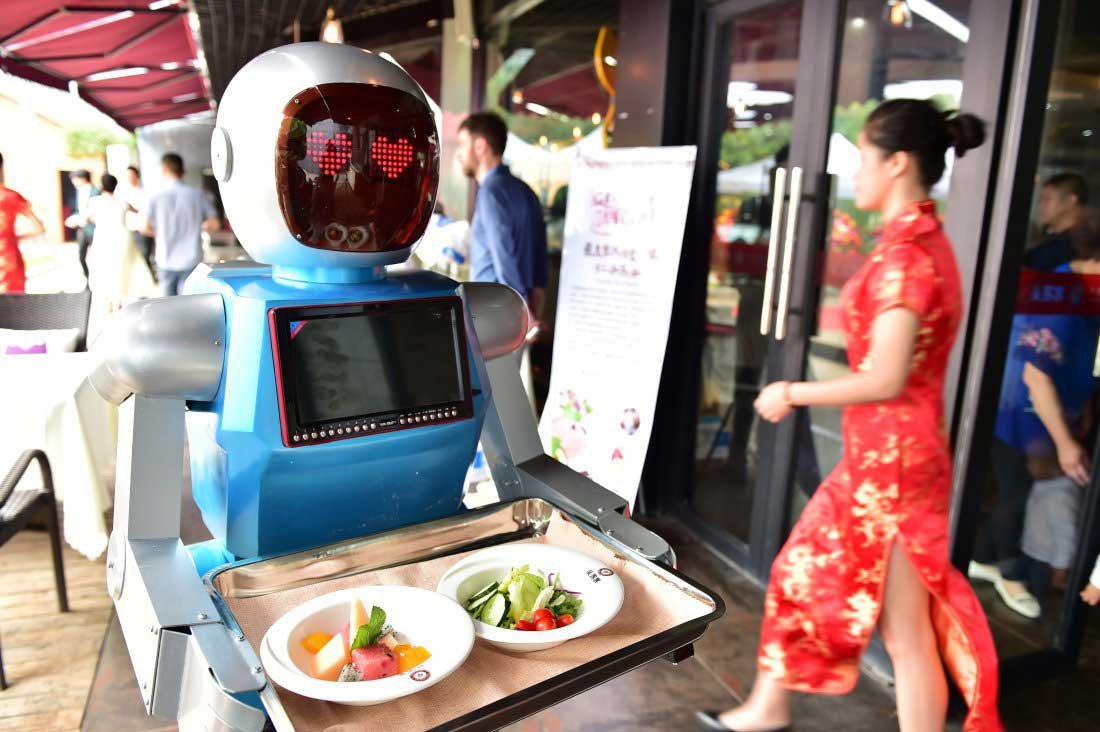
American employees are extra productive than ever, however their paychecks haven’t stored tempo. Researchers with the Federal Reserve Financial institution of San Francisco have a wrongdoer: robots. CBS Information reviews:
Economists Sylvain Leduc and Zheng Liu theorize that automation is sapping workers’ bargaining energy, making it more durable for them to demand larger wages. Corporations throughout a variety of industries more and more have the choice of utilizing expertise to deal with work previously completed by folks, giving employers the higher hand in setting pay. The consequence — a widening gulf between wages and productiveness.
The analysis could bolster proposals for common primary earnings, which is a authorities money stipend that usually doesn’t include necessities. Andrew Yang, a Democratic presidential candidate who’s working on a platform of giving each American grownup $1,000 per thirty days in primary earnings, tweeted in regards to the financial findings, writing that automation is “making it onerous for employees to ask for extra.”
“We must always simply give Individuals a increase,” he wrote. To make certain, automation is resulting in large adjustments in work which can be hitting some industries and employees particularly onerous, corresponding to decrease and middle-skilled employees. As an illustration, the ranks of workplace assistants and clerical employees is anticipated to shrink by 5% by way of 2026 as places of work shift duties to synthetic intelligence and different software program, in accordance with the Bureau of Labor Statistics. This might lead to a lack of 200,000 jobs.
blame business economists employee girl pay robots stagnant










